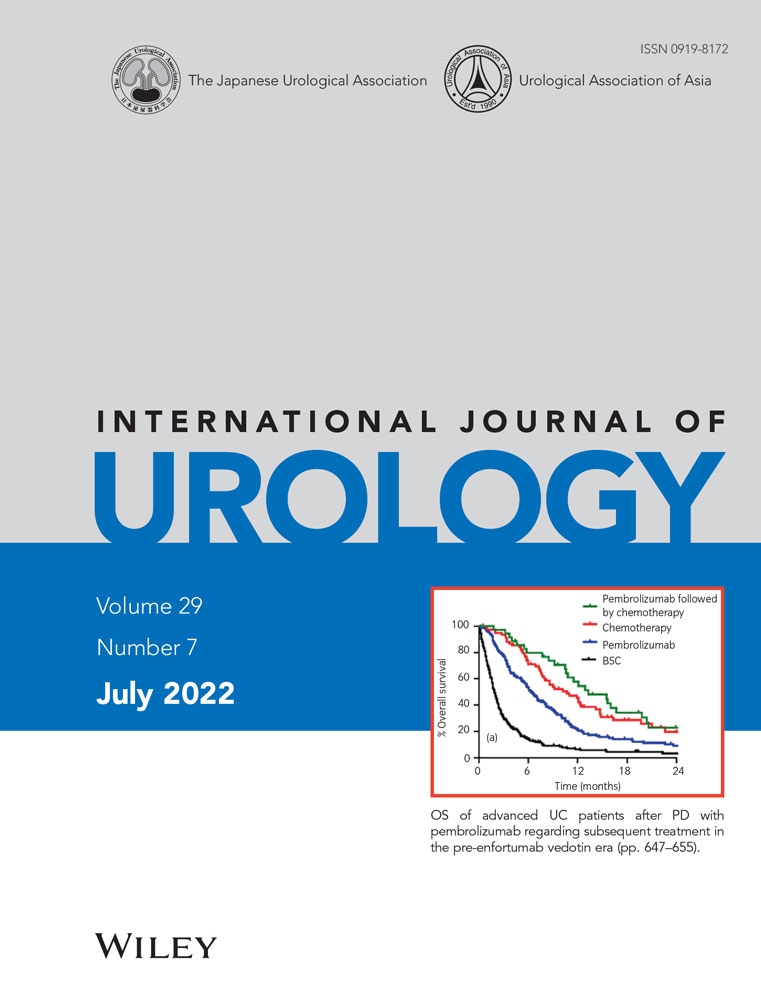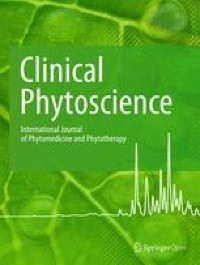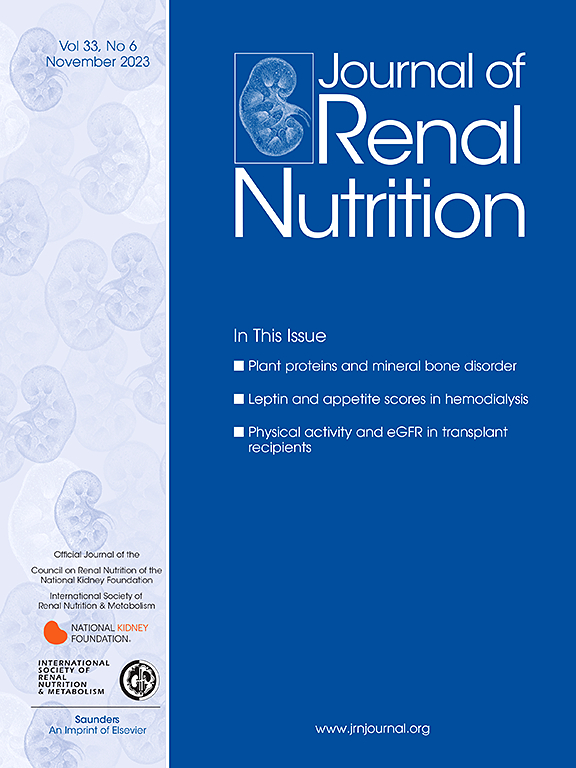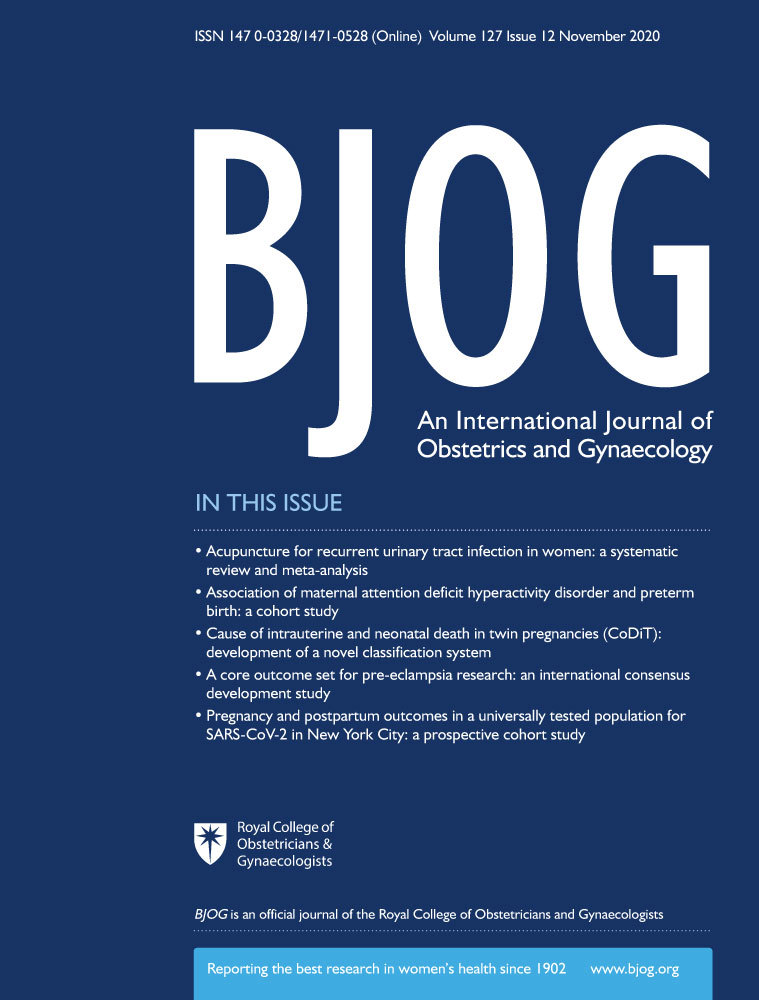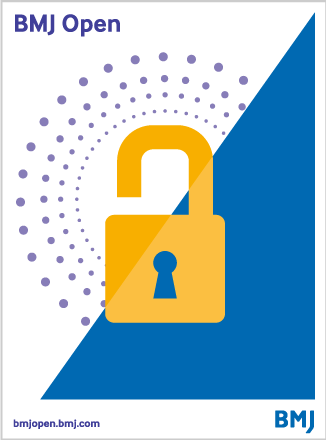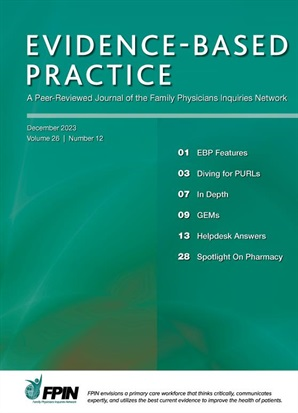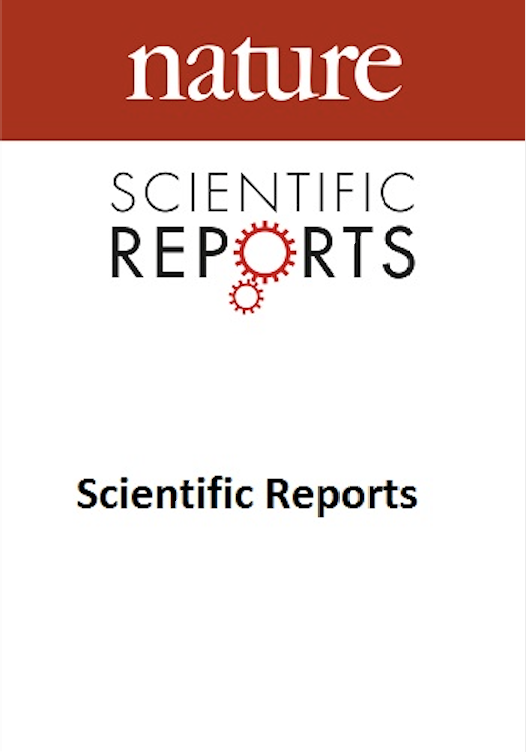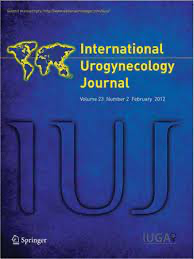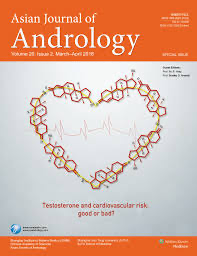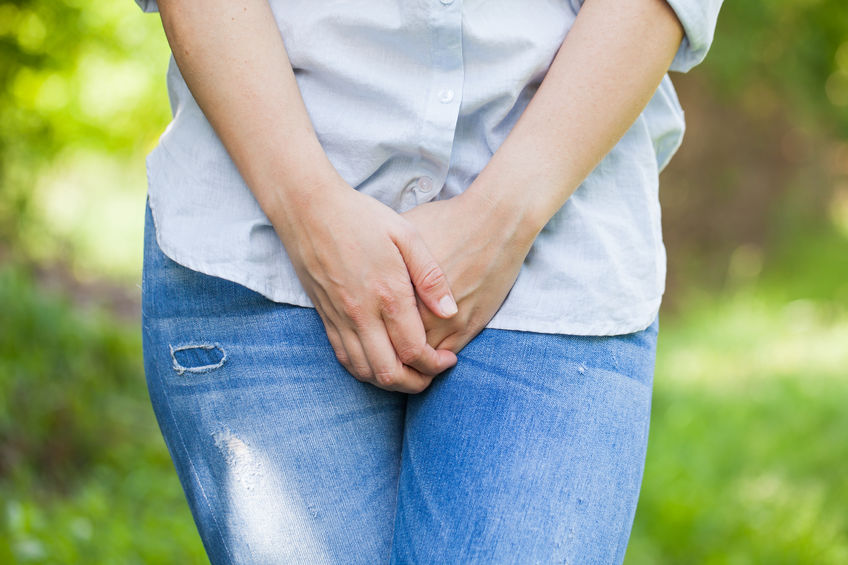
Acupuncture for Bladder & Urinary Tract Conditions.
Numerous conditions can affect the bladder and other parts of the urinary tract, with some specific to men, others to women, and some affecting both sexes.
Symptoms of overactive bladder and recurrent UTIs can greatly affect the quality of life of those affected.
Always seek prompt medical advice if you notice blood in the urine, pain on urination, inability to urinate or uncontrollable urine flow. If left untreated, urinary problems can lead to more serious kidney damage.
What does the research say?
The following insights are obtained from systematic reviews and analysis of clinical trials investigating the efficacy of Chinese medicine and acupuncture for bladder & urinary tract conditions.
2023 Journal of Ethnopharmacology
The herbal decoction Jian-Pi-Yi-Shen reduces symptoms of chronic kidney disease and anaemia by improving iron metabolism and inhibiting the JAK2-STAT3 signaling pathway.
Methodology used included an analysis of network pharmacology, chemical profiling, and in vivo experiments on the effect of Jian-Pi-Yi-Shen (JPYS) on renal anemia and chronic kidney disease (CKD). The active compounds in JPYS were detected in in vivo experiment, and their potential targets were predicted by network pharmacology. An animal model of CKD-related anemia was developed using adenine-feeding for further analysis. The estimation of renal injury was conducted using blood tests, histopathological examinations, and fibrosis degree assessment while the levels of JAK2, STAT3 and iron metabolism-related factors were measured through various techniques.
Discussion of the results reveals that 164 active ingredients, including prototypes and metabolites in JPYS, were discovered and 21 core targets were identified. Many of these core targets were associated with the JAK2-STAT3 signaling pathways. Experimental results demonstrated that JPYS treatment significantly improved hematological parameters and iron metabolism in CKD rats, decreased certain indicators of renal damage, and suppressed the expression of JAK2 and STAT3.
Jian-Pi-Yi-Shen formula restores iron metabolism from dysregulation in anemic rats with adenine-induced nephropathy Li C, Huang H, Wang R, Zhang C, Huang S, Wu J, Mo P, Yu H, Li S, Chen J
2023 Aging
Jian-Pi-Yi-Shen formula has shown potential in delaying kidney deterioration in chronic kidney disease by rejuvenating the process of creating nicotinamide adenine dinucleotide.
The study was conducted utilizing an adenine-diet feeding model for inducing chronic kidney disease in a breed of mice. For 4 weeks, these mice were given Jian-Pi-Yi-Shen formula orally. Human proximal tubular epithelial cells were stimulated with a growth factor, with or without the formula. Assessments were made of renal function via serum creatinine and blood urea nitrogen levels, with renal histopathological changes evaluated through specific staining techniques. Further, cell viability and NAD+ concentrations were monitored with assay kits.
The Jian-Pi-Yi-Shen formula did not only help in the improvement of renal function and reduction of pathological injury but it also inhibited renal fibrosis in the mice with chronic kidney disease. Moreover, the same formula was found to reverse fibrotic responses induced by a growth factor in human proximal tubular epithelial cells. Importantly, the formula was observed to recover the decreased NAD+ content in the chronic kidney disease mice and the human cells, bringing about the restoration of the expression of vital enzymes in the NAD+ synthesis process.
Jian-Pi-Yi-Shen formula alleviates renal fibrosis by restoring NAD+ biosynthesis in vivo and in vitro Gao L, Huang X, Deng R, Wu S, Peng Y, Xiong G, Lu J, Liu X
2022 International Journal of Urology
Chinese herbal medicine can significantly reduce the risks of complications and need for surgery associated with benign prostatic hyperplasia.
The methodology of the retrospective cohort study involved analyzing data from Taiwan's National Health Insurance Research Database, covering the period between 2001 to 2013. 4142 patients newly diagnosed as having benign prostatic hyperplasia were divided into Chinese herbal medicine users and non-users. To compare these groups, they employed 1:1 propensity score matching, and the risk of complications related to benign prostatic hyperplasia was evaluated using the Cox proportional hazard model.
The results showed that during the study period, the risk of complications related to benign prostatic hyperplasia was considerably lower in the Chinese herbal medicine group compared to the non-Chinese herbal medicine group, even when other variables were controlled for. The Chinese herbal medicine users had a significantly lower risk of urinary tract infection and urine retention. Plus, the Chinese herbal medicine users experienced a lower incidence rate of surgery related to benign prostatic hyperplasia and enjoyed a longer surgery-free interval than non-Chinese herbal medicine users. Among the Chinese herbal medicine, Salviae miltiorrhizae and Ji-Sheng-Shen-Qi-Wan were prescribed the most by traditional Chinese medicine practitioners.
Effects of Chinese herbal medicine in patients with benign prostatic hyperplasia: A nationwide cohort study in Taiwan Ou SC, Huang ST, Lin MC, Chen WC, Huang CP, Lin HJ
2022 Frontiers in Pharmacology
Various traditional Chinese medicine treatment strategies could potentially provide an effective alternative in slowing the progression of Chronic Kidney Disease.
The study explores the use of Traditional Chinese Medicine (TCM) and various Chinese materia medica (CMM) to manage Chronic Kidney Disease (CKD). The review delves deeper into the principles and treatment approaches of TCM in battling CKD, dictating that the disease's nature is deficient in the root and excessive in the branches, where deficiency and excess persist simultaneously throughout the condition. The main strategies employed by TCM in the treatment of CKD include invigorating Qi, tonifying kidneys, promoting blood circulation, removing stasis, eliminating heat and dampness, reducing turbidity, and controlling edema.
The discussion highlights the effectiveness of several CMMs in treating CKD, which are undergirded by clinical evidence or experimental studies. Notably, it points out a correlation between the macroscopic view of TCM and the microscopic view of modern medicine. These TCM and CMM strategies are hailed for their multi-targeted and multi-functional characteristics, potentially providing an effective alternative treatment approach for CKD.
Traditional Chinese Medicine in the Treatment of Chronic Kidney Diseases: Theories, Applications, and Mechanisms Yunlai Wang, Ye Feng, Manman Li, Mo Yang, Gaoxiang Shi, Zihua Xuan, Dengke Yin, Fan Xu
2022 Frontiers in Pharmacology
The Jian Pi Yi Shen formula in traditional Chinese medicine demonstrates a protective effect on kidneys by modulating tryptophan metabolism and Aryl hydrocarbon receptor activation.
A chronic kidney disease (CKD) rat model was induced by feeding a diet containing 0.75% adenine over a four-week period. Concurrently, the Jian-Pi-Yi-Shen formula was administered every day starting from the third week and continued for four additional weeks. Multiple factors were evaluated including renal injury, fibrotic markers expression, and serum creatinine and blood urea nitrogen levels. The levels of 10 tryptophan metabolites in the rat serum and Aryl hydrocarbon receptor signaling were detected and analyzed using ultra-high performance liquid chromatography-tandem mass spectrometry and Western blot analysis, respectively.
The Jian-Pi-Yi-Shen formula demonstrated significant effects of reducing both serum creatinine and blood urea nitrogen levels and improving renal pathological injuries in the CKD rat model. It was found that the formula also regulated tryptophan metabolism and decreased the levels of tryptophan metabolites in the serum. Furthermore, the formula suppressed the overactivated Aryl hydrocarbon receptor signaling in the kidney. These observations imply that the actions of the Jian-Pi-Yi-Shen formula could effectively protect against CKD.
Jian-Pi-Yi-Shen Formula Improves Adenine-Induced Chronic Kidney Disease via Regulating Tryptophan Metabolism and Aryl Hydrocarbon Receptor Signaling Liu X, Deng R, Chen Y, Huang S, Lu J, Zheng L, Xiong G, Li S
2022 Clinical Phytoscience
Pumpkin seed extract treatment could potentially offer symptomatic relief for patients experiencing moderate lower urinary tract symptoms suggestive of benign prostate hyperplasia.
The study methodology involved a meta-analysis of two separate studies that were randomized and placebo-controlled, focusing on the effectiveness of pumpkin seed extract in addressing urinary tract symptoms indicative of benign prostate hyperplasia. The participants included in these studies were those patients whose International Prostate Symptom Score was 13 points or higher at the baseline. The method of analysis involved assessing the response rates of patients and the improvement in prostate symptom scores at a 12-month follow-up.
The discussion of results revealed that the response rates in the group receiving pumpkin seed extract were marginally higher than that of the placebo group, giving pumpkin seed extract a slight edge. Additionally, there was a minor difference observed in the change from the baseline to 12-month Prostate Symptom Score in favour of pumpkin seed extract. The meta-analysis in general indicates that a treatment involving pumpkin seed extract may result in symptomatic relief for patients suffering from moderate urinary tract symptoms associated with benign prostate hyperplasia.
Beneficial effects of pumpkin seed soft extract on lower urinary tract symptoms and quality of life in men with benign prostatic hyperplasia: a meta-analysis of two randomized, placebo-controlled trials over 12 months Vahlensieck W, Heim S, Patz B, Sahin K
2021 Medicine
Acupuncture can effectively improve the post voided residual urine, maximal cystometric capacity, and bladder capacity for first voiding desire values of patients with urinary retention after hysterectomy.
There is insufficient evidence that acupuncture can increase the patient's MFR, BR, and UIR. However, acupuncture can effectively improve the PVR, maximal cystometric capacity, and bladder capacity for first voiding desire values of patients with urinary retention after hysterectomy. Although limited due to the quality and methodological limitations of the included studies, acupuncture can still be used as an effective and safe treatment for women with urinary retention after hysterectomy.
Efficacy and safety of acupuncture for urinary retention after hysterectomy Zhao Q, Yan C, Dan M, Jia H
2021 Medicine
Acupuncture can effectively improve the post voided residual urine, maximal cystometric capacity, and bladder capacity for first voiding desire values of patients with urinary retention after hysterectomy.
There is insufficient evidence that acupuncture can increase the patient's MFR, BR, and UIR. However, acupuncture can effectively improve the PVR, maximal cystometric capacity, and bladder capacity for first voiding desire values of patients with urinary retention after hysterectomy. Although limited due to the quality and methodological limitations of the included studies, acupuncture can still be used as an effective and safe treatment for women with urinary retention after hysterectomy.
Efficacy and safety of acupuncture for urinary retention after hysterectomy Zhao Q, Yan C, Dan M, Jia H
2021 Medicine
Acupuncture can effectively improve the post voided residual urine, maximal cystometric capacity, and bladder capacity for first voiding desire values of patients with urinary retention after hysterectomy.
There is insufficient evidence that acupuncture can increase the patient's MFR, BR, and UIR. However, acupuncture can effectively improve the PVR, maximal cystometric capacity, and bladder capacity for first voiding desire values of patients with urinary retention after hysterectomy. Although limited due to the quality and methodological limitations of the included studies, acupuncture can still be used as an effective and safe treatment for women with urinary retention after hysterectomy.
Efficacy and safety of acupuncture for urinary retention after hysterectomy Zhao Q, Yan C, Dan M, Jia H
2021 Nutrients
Extra virgin olive oil high in minor polar compounds significantly improves kidney function, reduces oxidative stress, inflammation, and ultimately benefits the body composition.
The research study tested two distinct types of extra virgin olive oils, namely Synergy with a high content and Luxolio with a medium content of minor polar compounds, on 40 patients suffering from kidney disease. The patients were administered a 40 mL dosage per day over nine weeks. Researchers assessed the impacts on renal functionality, oxidative stress, inflammation levels, and body composition, before and after a subsequent two-month wash out period. Additionally, the concentration of minor polar compounds in the oils was determined through high-performance liquid chromatography accompanied by diode-array detection and mass spectrometry (HPLC-DAD-MS).
The research showed improvements in kidney function indicators such as estimated glomerular filtration rate, albuminuria, azotemia, and uric acid. Further, the patients' lipid profile also improved, as did their inflammation parameters, erythrocyte sedimentation rate, C-reactive protein, and body composition. More notably, these beneficial effects were stronger and lasted longer in those patients who had been given the Synergy oil, indicating a sustained antioxidant and anti-inflammatory impact from EVOOs with higher concentrations of minor polar compounds.
Usefulness of Extra Virgin Olive Oil Minor Polar Compounds in the Management of Chronic Kidney Disease Patients Noce A, Marrone G, Urciuoli S, Di Daniele F, Di Lauro M, Pietroboni Zaitseva A, Di Daniele N, Romani A
2021 BMC Urology
Pumpkin seed oil can alleviate symptoms of benign prostatic hyperplasia with no side effects, though not as efficiently as tamsulosin.
In this single-blind randomized clinical trial, patients aged 50 years or above suffering from benign prostatic hyperplasia were included. These patients were divided into two groups, with one group being administered tamsulosin nightly and the other receiving pumpkin seed oil twice a day. Variables such as age, weight, height and body mass index of the patients were taken into account. The international prostate symptom score was noted for each patient at the start, then after one and three months into the treatment. Other factors recorded include the quality of life associated with BPH, prostate-specific antigen serum, prostate and postvoid residual volume and maximum urine flow. Information regarding any drug side effects was also recorded.
Following a comparison of the two groups, it was observed that there was no significant difference in principal variables at any point during the trial. However, both groups saw a notable reduction in the international prostate symptom score and an improvement in quality of life. The decrease was comparatively more significant in the tamsulosin group after one and three months. Patients administered pumpkin seed oil experienced no side effects, unlike those in the tamsulosin group who experienced dizziness, headaches, retrograde ejaculation and erythema with pruritus.
Pumpkin seed oil (Cucurbita pepo) versus tamsulosin for benign prostatic hyperplasia symptom relief: a single-blind randomized clinical trial Zerafatjou N, Amirzargar M, Biglarkhani M, Shobeirian F, Zoghi G
2021 Journal of Renal Nutrition
Consuming coffee is associated with lower risks of developing chronic kidney disease, reaching end-stage kidney disease, and having albuminuria.
In this systematic review and meta-analysis, researchers conducted a comprehensive literature search through various databases, including PubMed/Medline, Web of Science, Embase by Elsevier, and the Cochrane Central Register of Controlled Trials by Wiley from 1960 until February 2020. Outcomes related to chronic kidney disease incidence, its progression, and mortality associated with this disease were evaluated and correlated with coffee consumption and the amount consumed. Quality assessment of the included studies was done using the Newcastle-Ottawa scale.
The analysis incorporated 12 studies, with a mix of prospective and cross-sectional studies, and a total of 505,841 subjects. Seven of these studies focused on the relationship between coffee consumption and the onset of chronic kidney disease. The finding was that consuming coffee was significantly correlated with a decrease in the risk for this disease, especially for individuals who took more than 2 cups of coffee per day. Furthermore, there was also a noteworthy lower risk of reaching end-stage kidney disease for coffee drinkers, as well as a decrease in the risk of albuminuria (a kidney disease marker). Finally, the risk of death related to chronic kidney disease was discovered to be lower in coffee consumers.
Effect of Coffee Consumption on Renal Outcome: A Systematic Review and Meta-Analysis of Clinical Studies Kanbay M, Siriopol D, Copur S, Tapoi L, Benchea L, Kuwabara M, Rossignol P, Ortiz A, Covic A, Afsar B
2021 Frontiers in Pharmacology
The Jian-Pi-Yi-Shen (JPYS) traditional Chinese medicine formula aids in the alleviation of renal dysfunction and fibrosis in chronic kidney disease (CKD) rats by combating inflammation and cellular apoptosis.
Using an established model of 5/6 nephrectomized (5/6Nx) rats, an evaluation of the effects of the JPYS formula on renal function and fibrosis was conducted. To scrutinize the formula's impacts, markers of apoptosis, inflammation, oxidative stress, and the activity of Nrf2 signaling were measured. Correlative parameters including urinary protein, SCr, BUN, glomerular sclerosis index, tubulointerstitial fibrosis score, and renal histopathology were analyzed to assess the formula's preventive effect on renal dysfunction and fibrosis. The study also evaluated the gene expression associated with fibrosis and related elements such as TGF-β and various types of collagen.
The evaluation of JPYS's efficacy revealed significant protection against cell apoptosis, highlighted by altered gene expression of Bcl-2, Bax, caspase 3, caspase 9, and the number of TUNEL-positive cells. Moreover, it was observed that the JPYS formula countered the activation of the NF-κB-mediated inflammatory pathway, exhibiting a decrease in gene expression of numerous inflammatory markers in the kidney. Alongside this, the formula promoted antioxidant performance, alleviating oxidative stress as indicated by antioxidant index indicators and a reduction in reactive oxygen species biomarkers. The study also identified the upswing of essential elements like HO-1 and Nrf2 level and a decline in Keap1 expression, signaling rationale towards the formula's potential relief of renal oxidative damage.
Jian-Pi-Yi-Shen Formula Ameliorates Oxidative Stress, Inflammation, and Apoptosis by Activating the Nrf2 Signaling in 5/6 Nephrectomized Rats Zhou F, Zou X, Zhang J, Wang Z, Yang Y, Wang D
2020 BJOG: An International Journal of Obstetrics & Gynaecology
Acupuncture appeared to be beneficial for treatment and prophylaxis of recurrent urinary tract infections.
Five RCTs involving 341 participants were included. Methodological quality of studies and strength of the evidence were low to moderate. The chance of achieving a composite cure with acupuncture therapies was greater than that with antibiotics. The risk of UTI recurrence was lower with acupuncture than with no treatment and sham acupuncture.
Acupuncture appeared to be beneficial for treatment and prophylaxis of recurrent urinary tract infections, noting the limitations of the current evidence. Given the growing challenge of antibiotic resistance, there is a need for high-quality RCTs of non-pharmacological interventions such as acupuncture.
Acupuncture for recurrent urinary tract infection in women: a systematic review and metaâ€analysis Qin X, Coyle ME, Yang L, Liang J, Wang K, Guo X, Zhang AL, Mao W, Lu C, Xue CC, Liu X
2020 Evidence-Based Complementary and Alternative Medicine
Jian-Pi-Yi-Shen, a traditional Chinese medicine, helps treat anemia in chronic kidney disease by stimulating erythropoietin production and regulating iron recycling.
To investigate the effect of Jian-Pi-Yi-Shen (JPYS), chronic kidney disease (CKD) was experimentally induced in rats using a 5/6 nephrectomy. The rats were then administered JPYS orally in both high and low doses for a period of 90 days. Observations were made regarding the serum hepcidin level to assess iron homeostasis. Additionally, the protein expressions of hypoxia inducible factor-2, erythropoietin, ferritin, ferroportin, and the phosphorylation level of extracellular signal-regulated kinase 1/2 were studied using Western blot analysis.
The results showed that JPYS treatment significantly improved kidney function in the CKD rats. Alongside this, pathological kidney damage was found to be significantly restored post-JPYS treatment. The medicine was found to be effective in improving anemia in CKD through the upregulation of red blood cells, hemoglobin, and hematocrit levels. It was also discovered that JPYS stimulates the expressions of erythropoietin and hypoxia-inducible factor-2 proteins in the kidney and liver of the CKD rats, while inducing the phosphorylation of extracellular signal-regulated kinase 1/2 proteins. Furthermore, JPYS was seen to regulate the protein expressions of ferritin and ferroportin in the liver and spleen, as well as in the serum level of hepcidin, suggesting its role in systemic iron recycling.
Jian-Pi-Yi-Shen Regulates EPO and Iron Recycling Protein Expressions in Anemic Rats with Chronic Kidney Disease: Accumulation of Hypoxia Inducible Factor-2α via ERK Signaling Wang F, Yu H, Huang S, Zheng L, Zheng P, Zhang S, Li S, Chen J
2019 BMJ Open
Chinese herbal medicine may be effective and safe for treating diabetic kidney disease, although evidence quality varies.
The systematic review and meta-analysis comprised randomized controlled trials comparing the use of oral Chinese herbal medicine (CHM) to a placebo, involving a comprehensive search strategy and selecting from over 7000 articles, resulting in 20 studies with a total of 2719 participants. Potential bias was minimized by only including studies that pitted CHM against a placebo. In addition, an a priori subgroups analysis was conducted to identify potential candidate formulae and frequently used herbs for further exploration.
Despite these measures, the overall evidence ranged from moderate to very low quality due to unclear randomization procedures, substantial variations in outcome measures, and reduced external validity. The latter was affected by factors such as multi-ingredient herbal formulae, brief follow-up periods, limited numbers of clinical events, and the inclusion of older patients with less advanced disease.
Chinese herbal medicine for diabetic kidney disease: a systematic review and meta-analysis of randomised placebo-controlled trials Zhang L, Yang L, Shergis J, Zhang L, Zhang AL, Guo X, Qin X, Johnson D, Liu X, Lu C, Xue CC, Mao W
2018 Medicine
Acupuncture might have effect in decreasing the number of micturition episodes, incontinence episodes, and nocturia episodes.
Overactive bladder is stated as the occurrence of urinary urgency which will cause negative impacts and decrease patients’ health-related quality of life. The aim of this systematic review is to assess the efficiency and safety of acupuncture for adults with overactive bladder (OAB) comparing with sham-acupuncture, drugs, and acupuncture plus drugs.
Acupuncture might have effect in decreasing the number of micturition episodes, incontinence episodes, and nocturia episodes. However, the evidence is insufficient to show the effect using acupuncture alone or the additional effect to drugs in treating OAB.
Acupuncture for adults with overactive bladder: A systematic review and meta-analysis of randomized controlled trials Zhao Y, Zhou J, Mo Q, Wang Y, Yu J, Liu Z.
2018 Medicine
Acupuncture might have effect in decreasing the number of micturition episodes, incontinence episodes, and nocturia episodes.
According to the results of meta-analysis, acupuncture might have effect in decreasing the number of micturition episodes, incontinence episodes, and nocturia episodes. However, the evidence is insufficient to show the effect using acupuncture alone or the additional effect to drugs in treating OAB. Nevertheless, acupuncture is comparatively with few adverse reactions and safe. In the future, studies with high methodological quality and larger sample sizes are required.
Acupuncture for adults with overactive bladder Zhao Y, Zhou J, Mo Q, Wang Y, Yu J, Liu Z
2018 Evidence-Based Practice
Pumpkin seed oil and pumpkin seeds can effectively reduce obstructive urinary symptoms in patients dealing with symptomatic benign prostatic hypertrophy, performing as well as saw palmetto and prazosin.
In the methodology of this research, the scientists observed and compared the effects of pumpkin seed oil, pumpkin seeds, pumpkin seed extract, saw palmetto and prazosin on patients suffering from symptomatic benign prostatic hypertrophy. The main purpose of the experiment was to determine which substances could alleviate obstructive urinary symptoms to the greatest extent. Effects of these substances were noted on a consistent basis to accurately gauge their efficacy.
In the discussion of results, it was found that both pumpkin seed oil and pumpkin seeds exhibited a notable reduction in obstructive urinary symptoms among the patients. Pumpkin seed extract was observed to not perform better than placebo, implying it didn't contribute significantly to symptom relief. Interestingly, pumpkin seed oil was found to be on par with saw palmetto and prazosin in terms of alleviating BPH-related symptoms. This discovery positions pumpkin seed oil and pumpkin seeds as potential natural solutions for addressing urinary symptoms linked to benign prostatic hypertrophy.
Do pumpkin seeds or pumpkin supplements reduce symptoms of BPH? Edwards R, Shadiack A
2018 Evidence-Based Complementary and Alternative Medicine
The Jian-Pi-Yi-Shen formula appears to slow down chronic kidney disease progression by inhibiting inflammation via the nuclear factor-kappa B signaling pathway.
In the method used for this study, a rat model was established using a 5/6 nephrectomy process. The rats were then segregated into two groups: one group given the Jian-Pi-Yi-Shen formula treatment, and another group that served as a control. The formula, measured at a dosage of 2.06g/kg per day, was administered to the rats via gavage over a six-week period.
The results from this study revealed that the Jian-Pi-Yi-Shen formula treatment led to a substantial improvement in kidney function and a reduction in pathological injury in the rat model. A Multiplex analysis of various cytokines indicated that the formula triggered a reduction in proinflammatory cytokines and an increase in anti-inflammatory cytokine production. Additionally, the formula was found to inhibit the activation of the nuclear factor-kappa B signaling pathway that is typically associated with inflammation.
Jianâ€Piâ€Yiâ€Shen Formula Regulates Inflammatory Cytokines Production in 5/6 Nephrectomized Rats via Suppression of NFâ€ÎºB Activation Lu J, Liu X, Liao Y, Wang D, Chen J, Li S
2018 BMC Complementary Medicine and Therapies
The Jian-Pi-Yi-Shen Formula (JPYSF) has been found to significantly improve chronic kidney disease, potentially through the modulation of the mitochondrial quality control network.
In the study, 5/6 nephrectomized rats were treated daily for six weeks with the Chinese herbal concoction Jian-Pi-Yi-Shen Formula and Perindopril administered orally. Signs of chronic kidney disease were studied, such as renal function, pathological harm, and fibrosis, and were evaluated. Protein levels connected to the mitochondrial quality control network were measured using Western blot and immunofluorescence analysis techniques.
The research observed that the rats presented significantly decreased kidney function and qualitative injuries in kidney structure, evidenced by increased blood urea nitrogen, serum creatinine, urinary protein excretion, and signs of glomerular hypertrophy, tubular atrophy, and interstitial fibrosis. By administering the JPYSF, both the kidney function and structure saw an improvement. Further analysis unveiled that the residual kidneys of the rats had an unbalanced mitochondrial quality control network characterized by decreased mitochondrial fusion, biogenesis, mitophagy, and increased mitochondrial fission. This imbalance was rectified through treatment with the JPYSF, thus suggesting a potential therapeutic pathway.
Jian-Pi-Yi-Shen Formula ameliorates chronic kidney disease: involvement of mitochondrial quality control network Liu X, Chen J, Liu X, Wang D, Zheng P, Qi A, Yi T, Li S
2017 PLOS One
Acupuncture can significantly improve urological symptoms in the short term for men with benign prostatic hyperplasia.
The comprehensive study used a systematic review and a meta-analysis to measure both the therapeutic and adverse effects of acupuncture on benign prostatic hyperplasia (BPH) through randomized controlled trials. Independent reviewers analyzed and extracted data from various renowned databases including MEDLINE, EMBASE, The Cochrane Library, and several Chinese knowledge resources. The trials focused on BPH symptomatic men and reviewed the extent to which acupuncture treatment altered urological symptoms.
The results from eight separate randomized controlled trials involving 661 men were combined, showing statistical short-term (4-6 weeks) improvement in urological symptoms for BPH patients through the use of acupuncture. However, the medium-term follow-up (12-18 weeks) analysis did not indicate any significant effect. The beneficial effects were considerably noticeable in cases of moderate to severe BPH on the short-term follow-up endpoints. Nonetheless, the clinical significance of these changes necessitates rigorous and long-term follow-ups for validation.
Acupuncture for benign prostatic hyperplasia: A systematic review and meta-analysis Zhang W, Ma L, Bauer BA, Liu Z, Lu Y
2016 Medicine
Current evidence supports acupuncture as an effective treatment for chronic prostatitis/chronic pelvic pain syndrome-induced symptoms, particularly in relieving pain.
Real acupuncture was superior to sham acupuncture in improving symptoms (pain, voiding) and quality of life (Qof) domain subscores. Compared to sham acupuncture and medicine, acupuncture appears to be more effective at improving the global assessment. Two trials found that there is no significant difference between acupuncture and sham acupuncture in decreasing the IPSS score. Acupuncture failed to show more favorable effects in improving both symptoms and the Qof domain compared with medicine. Overall, current evidence supports acupuncture as an effective treatment for CP/CPPS-induced symptoms, particularly in relieving pain. Based on the meta-analysis, acupuncture is superior to sham acupuncture in improving symptoms and Qof. Acupuncture might be similar to medicine (Levofloxacinand, Ibuprofen, and Tamsulosin) in its long-term effects, but evidence was limited due to high ROB among included trials as well as potential heterogeneity. Acupuncture is associated with rare and slightly adverse events.
Systematic Review of Acupuncture for Chronic Prostatitis/Chronic Pelvic Pain Syndrome Qin Z, Wu J, Zhou J, Liu Z.
2016 Scientific Reports
Acupuncture may be recommended for the treatment of chronic prostatitis/chronic pelvic pain syndrome with relatively rare incidence of adverse events.
Based on decreases in the National Institutes of Health Chronic Prostatitis Symptom Index (NIH-CPSI) score, a network meta-analysis indicated that electro-acupuncture, acupuncture, alpha-blockers, antibiotics, and dual therapy are superior to placebo in decreasing this score. Additionally, electro-acupuncture and dual therapy were more effective than alpha-blockers in decreasing the total NIH-CPSI total score. Other network meta-analyses did not show significant differences between interventions other placebo. The incidence of adverse events of acupuncture was relatively rare (5.4%) compared with placebo (17.1%), alpha-blockers (24.9%), antibiotics (31%) and dual therapy (48.6%). Overall, rank tests and safety analyses indicate that electro-acupuncture/acupuncture may be recommended for the treatment of chronic prostatitis/chronic pelvic pain syndrome.
Network Meta-Analysis of the Efficacy of Acupuncture, Alpha-blockers and Antibiotics on Chronic Prostatitis/Chronic Pelvic Pain Syndrome Qin, Z., Wu, J., Tian, J. et al.
2016 International Urogynecology Journal
Some comparative trials showed the benefit of acupuncture to be comparable with antimuscarinic treatment for overactive bladder.
Initial animal studies suggest several biochemical mechanisms of action underlying the effect of acupuncture on overactive bladder (OAB) suppression. The experience in humans includes two case series and six comparative trials. All studies demonstrated subjective improvement in OAB symptoms, and some reported objective improvement in urodynamic studies. Notably, some comparative trials showed the benefit of acupuncture to be comparable with antimuscarinic treatment.
Despite their limitations, existing studies serve as a promising foundation for suggesting a role for acupuncture as an alternative therapy for OAB. Further well-designed studies are required to investigate optimal technique and their outcomes.
The role of acupuncture in managing overactive bladder; a review of the literature Forde JC, Jaffe E, Stone BV, Te AE, Espinosa G, Chughtai B.
2015 Evidence-Based Complementary and Alternative Medicine
We cautiously suggest that acupuncture therapy could demonstrate better clinical efficacy than pharmacological treatment or placebo treatment in treating nocturnal enuresis.
In summary, the results of this study suggest that acupuncture therapy demonstrate better clinical efficacy than pharmacological treatment or placebo treatment in treating NE. Due to the low methodological qualities of included trials, the findings of current study should be interpreted with caution. Therefore, to further assess the potential beneficial effect of acupuncture therapy for NE, additional RCTs with rigorous experimental design, large-scale high quality methodological control, long follow-ups, and strict reporting specification are required.
Efficacy of Acupuncture in Children with Nocturnal Enuresis: A Systematic Review and Meta-Analysis of Randomized Controlled Trials Lv ZT, Song W, Wu J, et al.
2015 The Prostate
Pomegranate Fruit Extract (PFE) can potentially mitigate testosterone-induced Benign Prostatic Hyperplasia in rats due to its anti-inflammatory, antioxidant and pro-apoptotic properties.
The study was carried out using 48 rats, which were randomly distributed into six groups. The Benign Prostatic Hyperplasia (BPH), a disease that affects men over 50, was induced in these rats using testosterone, except for one group which served as the control. Four groups of the induced rats, thereafter, were treated with diverse daily dosages of Pomegranate Fruit Extract (PFE), while one group received a regular dosage of PFE without BPH induction.
Regarding the investigation outcomes, the most significant effect was observed in rats treated with the largest (100mg/kg) dosage of PFE. This treatment substantially reduced testosterone-induced increase in prostate weight and other related levels. Additionally, PFE significantly decreased Malondialdehyde (a marker for oxidative stress) and increased Glutathione, Superoxide dismutase, and Catalase, all of which work as antioxidants. The PFE also demonstrated an ability to decrease the expression of COX-II, iNOS and Ki-67 (indicators of inflammation and cell proliferation) while enhancing the rate of apoptosis (programmed cell death), contributing to the prevention of BPH development.
The effect of pomegranate fruit extract on testosteroneâ€induced BPH in rats Ammar AE, Esmat A, Hassona MDH, Tadros MG, Abdelâ€Naim AB, Guns EST
2013 Asian Journal of Andrology
Chinese herbal medicine appears to be more effective than Western medication in improving quality of life and reducing prostate volume in benign prostatic hyperplasia patients.
The method utilized in this research involved the systematic review of randomized controlled trials from diverse electronic databases. These trials were focused on comparing Chinese herbal medicine, in standalone or supplementary use with Western medication, against placebo or solely Western medication. All trials reviewed pertained to benign prostatic hyperplasia. Outcomes measured included changes in patients' urological symptoms, urodynamic measures, prostate volume and the occurrence of adverse events.
The analysis revealed that Chinese herbal medicine was superior to Western medicines in terms of improving patients' quality of life as well as reducing the size of the prostate. Furthermore, the occurrence and frequency of adverse events in patients treated with Chinese herbal medicines were found to be similar to those observed in placebo groups and lesser compared to groups treated with Western medication. However, due to the limited number of trials and their methodological quality, the evidence supporting the efficacy of Chinese herbal medicine remains weak.
Efficacy and safety of Chinese herbal medicine for benign prostatic hyperplasia: systematic review of randomized controlled trials Ma CH, Lin WL, Lui SL, Cai XY, Wong VT, Ziea E, Zhang ZJ
Consult with our practitioners for personalised care and advice.
Although well-conducted clinical research can help members of the public to make better-informed decisions about their healthcare, we cannot claim that any particular treatment may be effective for any individual person.
When you consult with our Chinese medicine practitioners, you'll receive personalised advice and treatment based on your symptoms and Chinese medicine diagnosis.
Scientific References
Browse our collection of scientific clinical research on acupuncture for bladder & urinary tract conditions.
It includes recent and reputable papers published by peer-reviewed journals within the last 10 years.

2023, Aug
Jian-Pi-Yi-Shen formula restores iron metabolism from dysregulation in anemic rats with adenine-induced nephropathy
Journal of Ethnopharmacology
Jian-Pi-Yi-Shen (JPYS) reduces hepcidin levels by inhibiting JAK2-STAT3 signaling, thereby improving iron metabolism and alleviating renal anemia in CKD rats. Experimental results demonstrated improvements in renal function, histopathological damage, and hematological parameters following JPYS treatment.
Li C, Huang H, Wang R, Zhang C, Huang S, Wu J, Mo P, Yu H, Li S, Chen J Full Article

2023, Dec 28
Jian-Pi-Yi-Shen formula alleviates renal fibrosis by restoring NAD+ biosynthesis in vivo and in vitro
Aging
The study concluded that JPYSF alleviated renal fibrosis in CKD mice and reversed fibrotic responses in TGF-β1-induced HK-2 cells, likely through the restoration of NAD+ biosynthesis.
Gao L, Huang X, Deng R, Wu S, Peng Y, Xiong G, Lu J, Liu X Full Article

2022, Mar 14
Effects of Chinese herbal medicine in patients with benign prostatic hyperplasia: A nationwide cohort study in Taiwan
International Journal of Urology
Our study demonstrated that Chinese herbal medicine might have effects in the benign prostatic hyperplasia-related complications and surgeries in patients with benign prostatic hyperplasia.
Ou SC, Huang ST, Lin MC, Chen WC, Huang CP, Lin HJ Full Article

2022, Jul 18
Traditional Chinese Medicine in the Treatment of Chronic Kidney Diseases: Theories, Applications, and Mechanisms
Frontiers in Pharmacology
In summary, TCM has made major progress in the treatment of chronic kidney disease (CKD) and has shown a beneficial role in delaying CKD in clinical, animal, and in vitro studies.
Yunlai Wang, Ye Feng, Manman Li, Mo Yang, Gaoxiang Shi, Zihua Xuan, Dengke Yin, Fan Xu Full Article

2022, Jul 05
Jian-Pi-Yi-Shen Formula Improves Adenine-Induced Chronic Kidney Disease via Regulating Tryptophan Metabolism and Aryl Hydrocarbon Receptor Signaling
Frontiers in Pharmacology
The results found that JPYSF treatment significantly lowered Scr and BUN levels, improved renal pathological injury, and down-regulated fibrotic markers expression in CKD rats. Furthermore, JPYSF significantly reduced the levels of 10 tryptophan metabolites in the serum of CKD rats and restored the level of tryptophan. Additionally, the kidney expression of AHR signaling was enhanced in CKD rats and was further suppressed in JPYSF treated rats. These results suggested that JPYSF protected against adenine-induced CKD via modulating tryptophan metabolism and AHR activation.
Liu X, Deng R, Chen Y, Huang S, Lu J, Zheng L, Xiong G, Li S Full Article

2022, Apr 13
Beneficial effects of pumpkin seed soft extract on lower urinary tract symptoms and quality of life in men with benign prostatic hyperplasia: a meta-analysis of two randomized, placebo-controlled trials over 12 months
Clinical Phytoscience
The meta-analysis, incorporating patient-level data from the Bach and GRANU studies, suggests that, despite contradictory results in individual trials, PSE demonstrates an advantage over placebo, with a higher percentage of patients in the PSE group showing an International Prostate Symptom Score (IPSS) improvement of at least 5 points after 12 months. This implies potential symptomatic relief for patients with moderate LUTS/BPH through PSE treatment.
Vahlensieck W, Heim S, Patz B, Sahin K Full Article

2021, Jun 04
Efficacy and safety of acupuncture for urinary retention after hysterectomy
Medicine
There is insufficient evidence that acupuncture can increase the patient's maximal flow rate (MFR), bladder function recovery rate (BR), and urinary tract infection rate (UIR). However, acupuncture can effectively improve the post voided residual urine (PVR), maximal cystometric capacity, and bladder capacity for first voiding desire values of patients with urinary retention after hysterectomy. Although limited due to the quality and methodological limitations of the included studies, acupuncture can still be used as an effective and safe treatment for women with urinary retention after hysterectomy.
Zhao Q, Yan C, Dan M, Jia H Full Article

2021, Feb 10
Usefulness of Extra Virgin Olive Oil Minor Polar Compounds in the Management of Chronic Kidney Disease Patients
Nutrients
The high MPC EVOO (Synergy) demonstrated greater and persistent improvements in renal function biomarkers, lipid profile, oxidative stress, inflammatory parameters, and body composition compared to the medium MPC EVOO (Luxolio) in nephropathic patients.
Noce A, Marrone G, Urciuoli S, Di Daniele F, Di Lauro M, Pietroboni Zaitseva A, Di Daniele N, Romani A Full Article

2021, Oct 19
Pumpkin seed oil (Cucurbita pepo) versus tamsulosin for benign prostatic hyperplasia symptom relief: a single-blind randomized clinical trial
BMC Urology
Pumpkin seed oil relieved BPH symptoms with no side effects, but was not as effective as tamsulosin.
Zerafatjou N, Amirzargar M, Biglarkhani M, Shobeirian F, Zoghi G Full Article

2021, Jan
Effect of Coffee Consumption on Renal Outcome: A Systematic Review and Meta-Analysis of Clinical Studies
Journal of Renal Nutrition
Coffee consumption is associated with a significant decrease in the risk for incident CKD, ESKD, and albuminuria, as well as a lower risk of death related to CKD.
Kanbay M, Siriopol D, Copur S, Tapoi L, Benchea L, Kuwabara M, Rossignol P, Ortiz A, Covic A, Afsar B Full Article

2021, Mar 25
Jian-Pi-Yi-Shen Formula Ameliorates Oxidative Stress, Inflammation, and Apoptosis by Activating the Nrf2 Signaling in 5/6 Nephrectomized Rats
Frontiers in Pharmacology
The study found that the JPYS formula significantly prevented renal dysfunction and fibrosis, alleviated apoptosis and inflammation, and improved oxidative stress by activating the Nrf2 signaling pathway in CKD rats.
Zhou F, Zou X, Zhang J, Wang Z, Yang Y, Wang D Full Article

2020, Jun 03
Acupuncture for recurrent urinary tract infection in women: a systematic review and metaâ€analysis
BJOG: An International Journal of Obstetrics & Gynaecology Royal College of Obstetricians & Gynaecologists
Given the growing challenge of antibiotic resistance, the chance of achieving a composite cure with acupuncture therapies was greater than that with antibiotics. Acupuncture appeared to be beneficial for treatment and prophylaxis of rUTIs.
Qin X, Coyle ME, Yang L, Liang J, Wang K, Guo X, Zhang AL, Mao W, Lu C, Xue CC, Liu X Full Article

2020, Oct 30
Jian-Pi-Yi-Shen Regulates EPO and Iron Recycling Protein Expressions in Anemic Rats with Chronic Kidney Disease: Accumulation of Hypoxia Inducible Factor-2α via ERK Signaling
Evidence-Based Complementary and Alternative Medicine
JPYS induces the expression of erythropoietin (EPO) through ERK-mediated HIF-2α protein accumulation and regulates systemic iron recycling, thereby promoting erythropoiesis and improving anemia in CKD.
Wang F, Yu H, Huang S, Zheng L, Zheng P, Zhang S, Li S, Chen J Full Article

2019, Apr
Chinese herbal medicine for diabetic kidney disease: a systematic review and meta-analysis of randomised placebo-controlled trials
BMJ Open
Chinese herbal medicine (CHM) may have beneficial effects on renal function and albuminuria beyond that afforded by conventional treatment in adults with diabetic kidney disease (DKD).
Zhang L, Yang L, Shergis J, Zhang L, Zhang AL, Guo X, Qin X, Johnson D, Liu X, Lu C, Xue CC, Mao W Full Article

2018, Feb 23
Acupuncture for adults with overactive bladder: A systematic review and meta-analysis of randomized controlled trials
Medicine
The combined results showed that electroacupuncture (EA) may be more effective than sham electroacupuncture (sham EA) in improving the 24-hour nocturia episodes and EA may enhance tolterodine for relieving voiding symptoms and enhancing patients’ quality of life. Acupuncture might have effect in decreasing the number of micturition episodes, incontinence episodes, and nocturia episodes.
Zhao Y, Zhou J, Mo Q, Wang Y, Yu J, Liu Z. Full Article

2018, Feb 23
Acupuncture for adults with overactive bladder
Medicine
Acupuncture might have effect in decreasing the number of micturition episodes, incontinence episodes, and nocturia episodes. However, the evidence is insufficient to show the effect using acupuncture alone or the additional effect to drugs in treating OAB.
Zhao Y, Zhou J, Mo Q, Wang Y, Yu J, Liu Z Full Article

2018, Jun
Do pumpkin seeds or pumpkin supplements reduce symptoms of BPH?
Evidence-Based Practice
The study concludes that pumpkin seed oil and pumpkin seeds show a reduction in obstructive urinary symptom scores for symptomatic BPH patients, with pumpkin seed oil being equivalent to saw palmetto and prazosin, while pumpkin seed extract does not outperform a placebo.
Edwards R, Shadiack A Full Article

2018, Jan
Jianâ€Piâ€Yiâ€Shen Formula Regulates Inflammatory Cytokines Production in 5/6 Nephrectomized Rats via Suppression of NFâ€ÎºB Activation
Evidence-Based Complementary and Alternative Medicine
The study demonstrated that JPYSF significantly retarded CKD progression in the 5/6 nephrectomy rat model, likely through the inhibition of inflammation via the NF-κB signaling pathway.
Lu J, Liu X, Liao Y, Wang D, Chen J, Li S Full Article

2018, Dec
Jian-Pi-Yi-Shen Formula ameliorates chronic kidney disease: involvement of mitochondrial quality control network
BMC Complementary Medicine and Therapies
The study demonstrated that JPYSF significantly improved renal function and structure in 5/6 Nx rats, likely through modulation of the mitochondrial quality control network.
Liu X, Chen J, Liu X, Wang D, Zheng P, Qi A, Yi T, Li S Full Article

2017, Apr 04
Acupuncture for benign prostatic hyperplasia: A systematic review and meta-analysis
PLOS One Public Library of Science
Statistically significant changes were observed in favor of acupuncture in moderate to severe BPH with respect to short-term follow-up endpoints. The clinical significance of these changes needs to be tested by further studies with rigorous designs and longer follow-up times.
Zhang W, Ma L, Bauer BA, Liu Z, Lu Y Full Article

2016, Mar
Systematic Review of Acupuncture for Chronic Prostatitis/Chronic Pelvic Pain Syndrome
Medicine
Overall, current evidence supports acupuncture as an effective treatment for CP/CPPS-induced symptoms, particularly in relieving pain. Based on the meta-analysis, acupuncture is superior to sham acupuncture in improving symptoms and Qof. Acupuncture might be similar to medicine (Levofloxacinand, Ibuprofen, and Tamsulosin) in its long-term effects, but evidence was limited due to high ROB among included trials as well as potential heterogeneity. Acupuncture is associated with rare and slightly adverse events.
Qin Z, Wu J, Zhou J, Liu Z. Full Article

2016, Oct 19
Network Meta-Analysis of the Efficacy of Acupuncture, Alpha-blockers and Antibiotics on Chronic Prostatitis/Chronic Pelvic Pain Syndrome
Scientific Reports
Overall, rank tests and safety analyses indicate that electro-acupuncture/acupuncture may be recommended for the treatment of CP/CPPS.
Qin, Z., Wu, J., Tian, J. et al. Full Article

2016, Jan 6
The role of acupuncture in managing overactive bladder; a review of the literature
International Urogynecology Journal International Urogynecological Association
Overactive bladder (OAB) affects a considerable proportion of men and women. Thus there is increasing interest in the use of alternative medicine in the form of acupuncture. This literature review indicated the benefit of acupuncture to be comparable with antimuscarinic treatment.
Forde JC, Jaffe E, Stone BV, Te AE, Espinosa G, Chughtai B. Full Article

2015, Jun 16
Efficacy of Acupuncture in Children with Nocturnal Enuresis: A Systematic Review and Meta-Analysis of Randomized Controlled Trials
Evidence-Based Complementary and Alternative Medicine
Based on the findings of this study, we cautiously suggest that acupuncture therapy could improve the clinical efficacy. However, the beneficial effect of acupuncture might be overstated due to low methodological qualities. Rigorous high quality RCTs are urgently needed.
Lv ZT, Song W, Wu J, et al. Full Article

2015, Jan 25
The effect of pomegranate fruit extract on testosteroneâ€induced BPH in rats
The Prostate
PFE at a dose of 100 mg/kg was the most effective in decreasing testosterone-induced increase in prostate weight and preventing histological changes associated with BPH, suggesting its potential as a preventive treatment for BPH.
Ammar AE, Esmat A, Hassona MDH, Tadros MG, Abdelâ€Naim AB, Guns EST Full Article

2013, Jun 03
Efficacy and safety of Chinese herbal medicine for benign prostatic hyperplasia: systematic review of randomized controlled trials
Asian Journal of Andrology Asian Society of Andrology
Chinese herbal medicine was superior to Western medication in improving quality of life and reducing prostate volume. The frequency of adverse events in Chinese herbal medicine was similar to that of placebo and less than that of Western medication.
Ma CH, Lin WL, Lui SL, Cai XY, Wong VT, Ziea E, Zhang ZJ Full Article
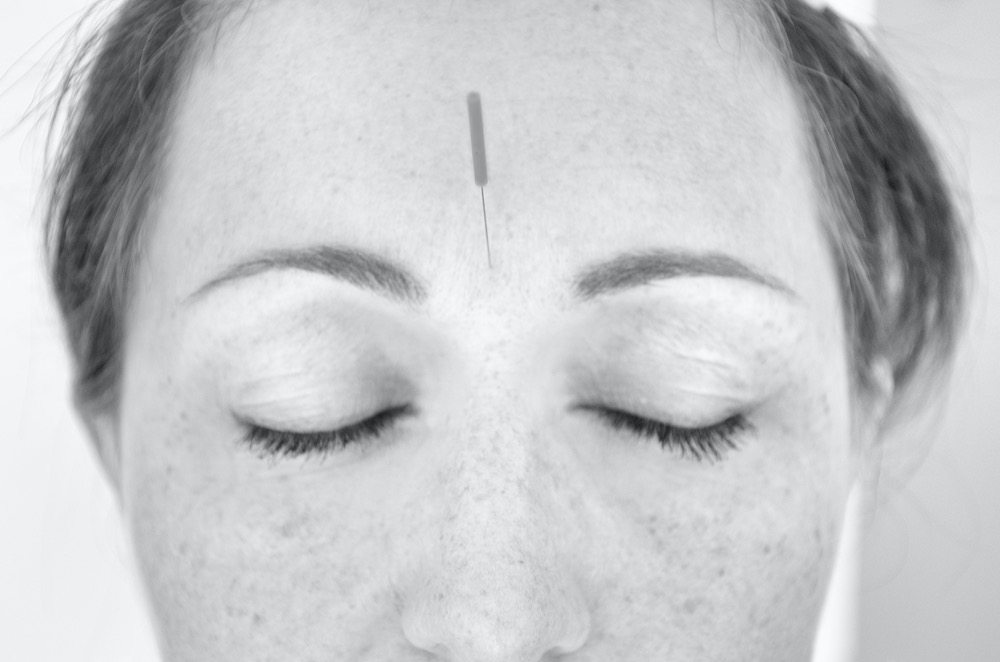
“It is by virtue of the twelve channels that human life exists, that disease arises, that human beings can be treated and illness cured. The twelve channels are where beginners start and masters end.” The Classic of Acupuncture
Circa 1st Century BCE


